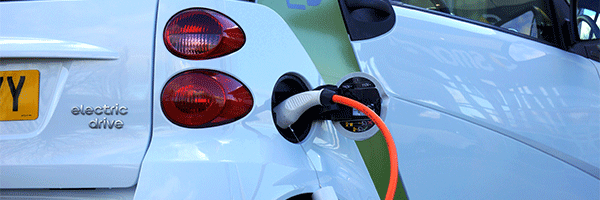Hertz (HTZ) plans to sell a third of its U.S. electric vehicle fleet and reinvest in gas-powered cars.
The company says the shift is due to weak demand and high repair costs for its electric vehicle fleet. Which is dominated by Tesla’s electric vehicles. Electric vehicles make up about 11% of the Hertz fleet and 80% of those electric vehicles are Teslas.
The news certainly isn’t a plus for electric cars and electric car makers. But I think it’s also important not to forget that Hertz is struggling to show improvements on its bottom line. Tesla’s price cuts–and their effect on the resale value of the Hertz fleet–may have more to do with this abrupt about face than weak demand and higher repair costs.
An abrupt about face this certainly is. In 2021 Hertz announced plans to buy 100,000 Tesla vehicles. Last month Hertz sold 20,000 electric cars and the company said it will continue sales over the course of 2024. The company had also announced an agreement to buy 175,000 electric vehicles from General Motors (GM) over the next four years and another 65,000 from Polestar. Those purchases will now take much longer to complete, Hertz said.
But to put this story in context, you have to understand the complex nature of rental car accounting. Hertz makes money from renting cars, sure, but the company’s costs are very heavily influenced by its business of selling cars out of its fleet. When the price it can get for those used cars falls–if for instance, Tesla and other electric vehicle makers wage a price war–then the company winds up getting less from those car sales than projected and sees the value of its fleet fall, which generates a significant accounting charge.
Tesla’s price cuts raised its depreciation costs, Hertz said. That plus higher repair costs compared to the rest of its cars played a big role in missing third-quarter earnings estimates.The plan to sell electric vehicles and replace them with conventional gas-powered cars should improve Hertz’s cash flow and earnings this year and next, the company projects. By year-end 2025, the company expects improved financial results driven by higher revenue per day and lower depreciation and operating expenses. The company sees incremental free cash flow of as much as $300 million in the aggregate over 2024 and 2025.
In the shorter run, however, Hertz said it will record a non-cash charge to its fourth-quarter results of about $245 million related to incremental net depreciation expense.
Hertz shares are down 19.73% for 2024 through the close on January 12 and down 51.23% over the last year.



There is more to this. I rented an electric car (tesla model 3) from hertz. Most of the telsa’s are in terrible condition with interior trim falling off, dents and etc. They apparently spend most of their time as ubers. We got ours, and the interior trim by the seat belt fell off. We stuck it back on…. The car showed up with a 60% charge, and we had to return it with a 60% charge. We drove 70 miles and the battery was down to 8%. So I took it home, and the car only came with a level 1 charger. My garage I had wired in a 50 amp outlet to accomodate a level 2 or RV, which we couldn’t use to charge the tesla. I plugged the car in to a standard 110V, and 12 hours later it was at 28% charge. The car estimated it would take more than 48 hours to get to 100%. My friend who was staying with us drove it 30 miles later it was back to 8% charge, and the set belt stopped working. It wasn’t practical unless you like to spend all your time charging, we returned it the next day and switched to an ICE car. The broken interior pieces were the straw that broke the camels back for us. I wouldn’t bother with it if I was in a rural area.